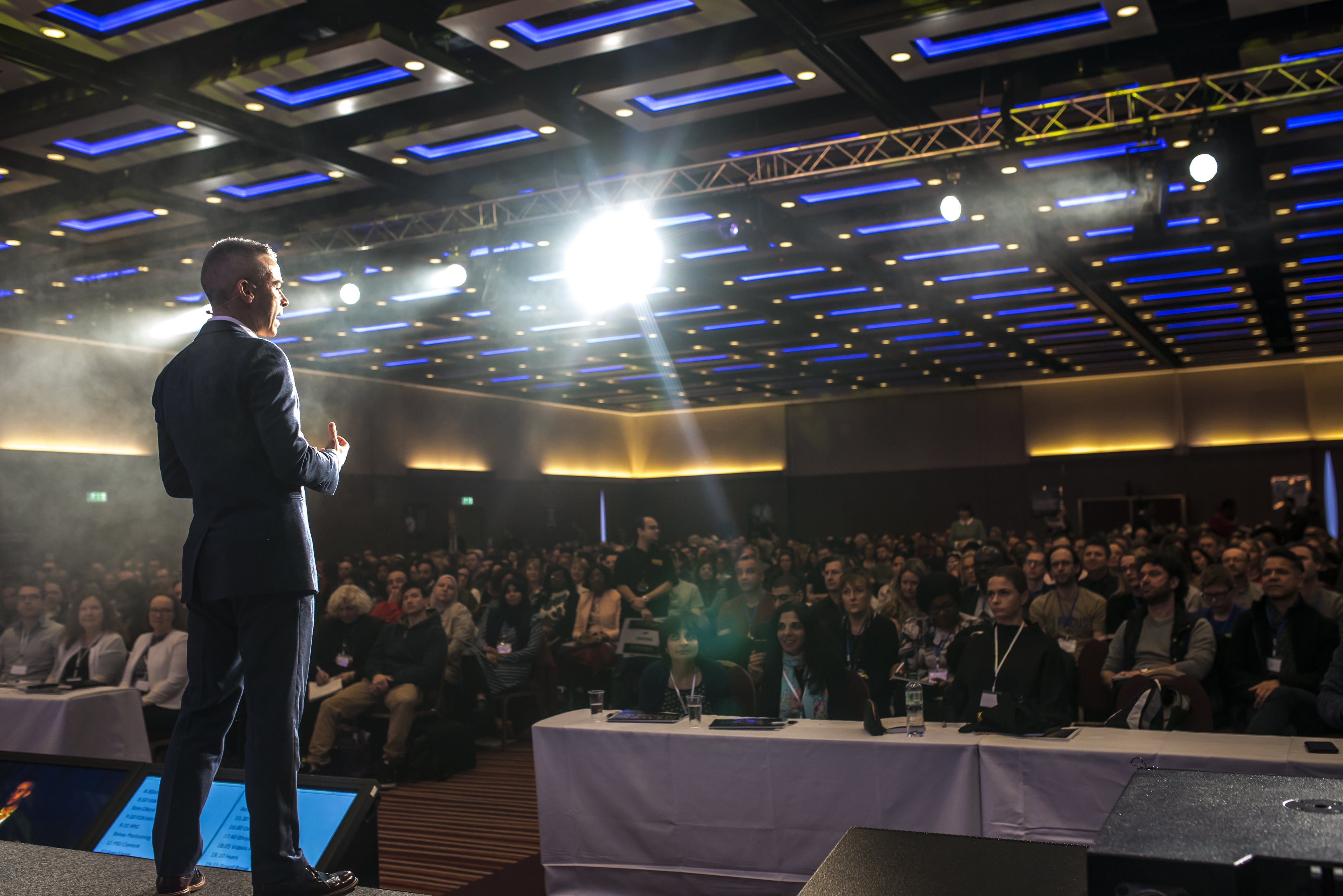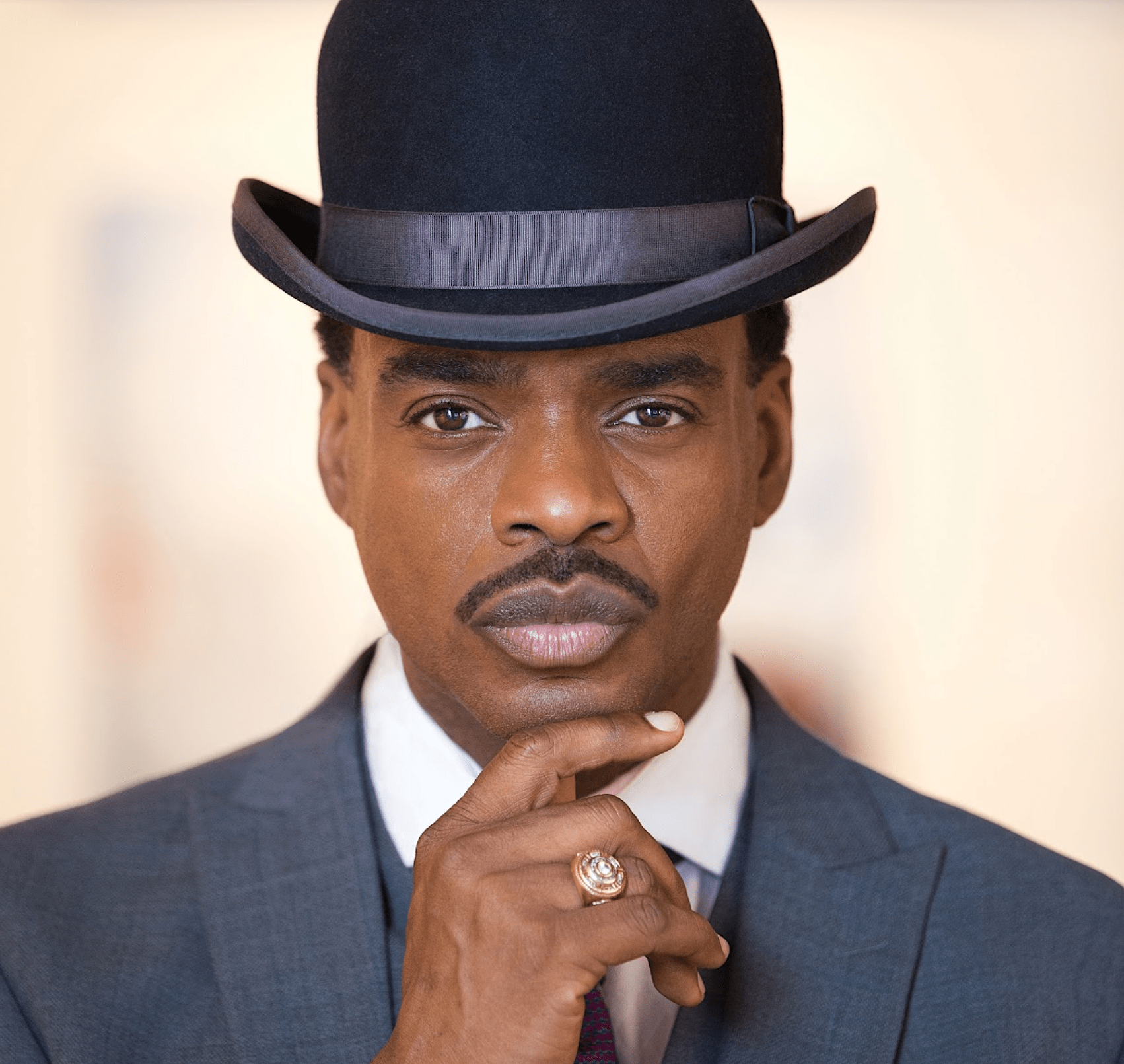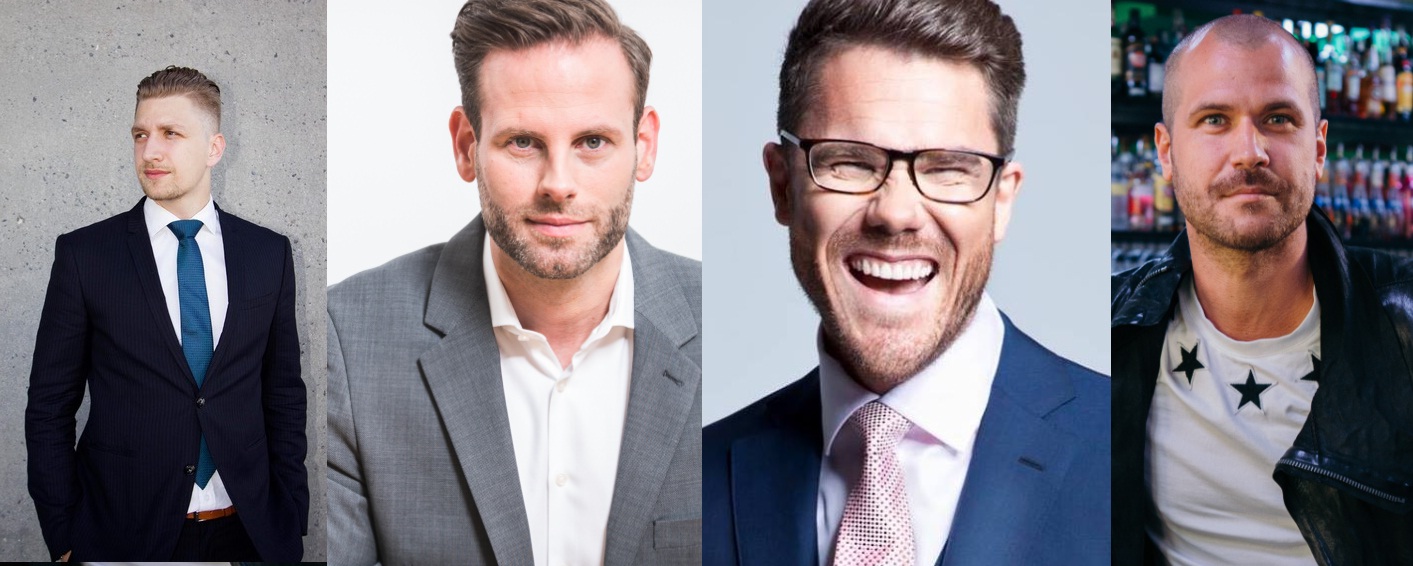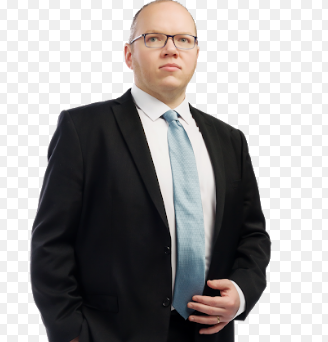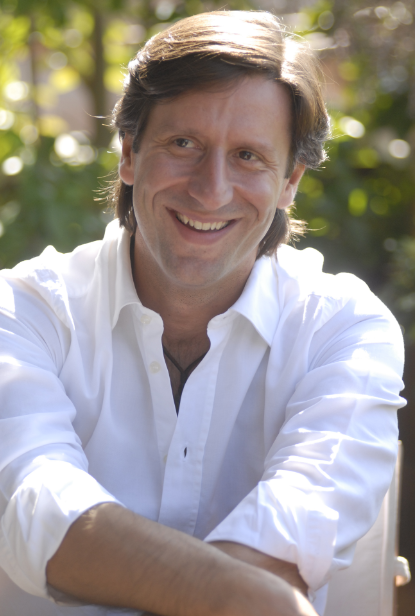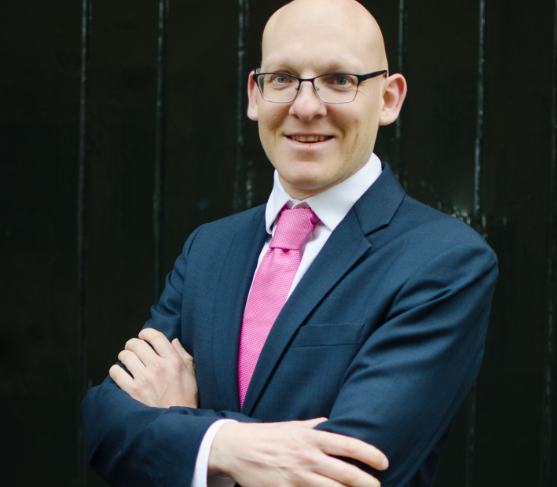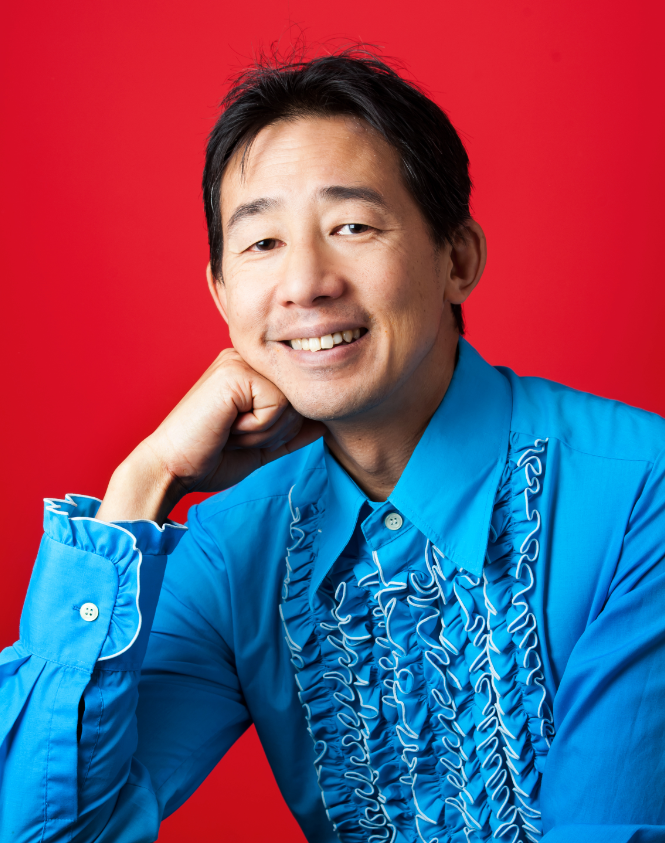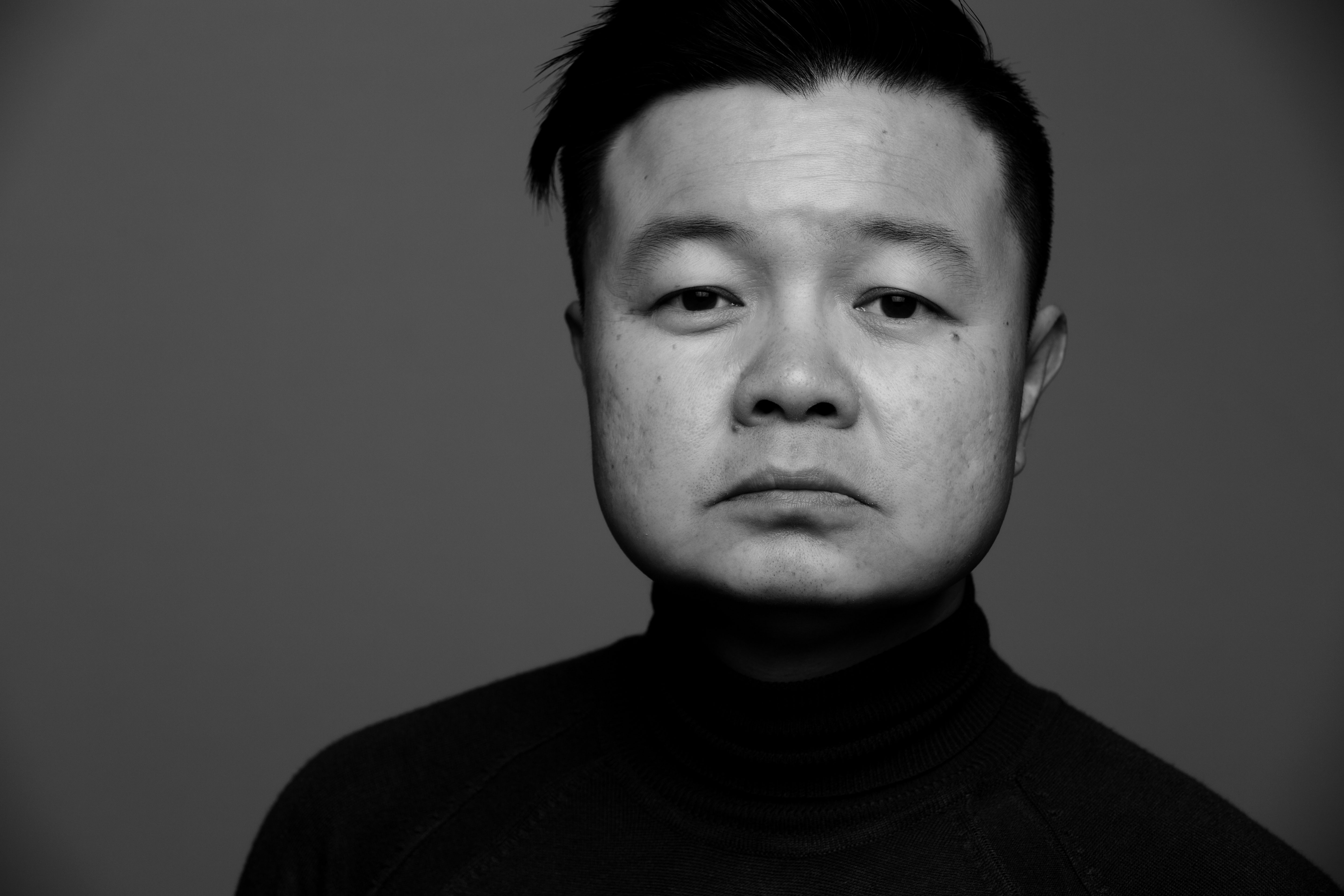By Fati Gorezi
Andy Harrington is ‘The Sunday Times’ best-selling Author of “Passion into Profit – How to make big money from who you are and what you know”. At age 29 Andy Harrington was working in a call-centre for an insurance company making just £1500 per month. Frustrated with his dead-end job he borrowed £10,000 from the bank and started a business that has now pulled in more than £50,000,000 ($78,000,000) in revenue. Having sold his company Andy has gone on to Coach Hollywood movie stars and some of the world’s best speakers through his Public Speakers University and Professional Speakers Academy. Andy is also the founder of “The Professional Speakers Academy” that helps business people position, perform and pitch their way to profit. He has shared the stage with Sir Richard Branson, Anthony Robbins, Sir Alan Sugar, Brian Tracy, Paul McKenna and Bob Proctor of ‘The Secret’ to name but a few.
Could you please tell us a bit about you and how you started making money?
I left school with no real qualifications to speak of and at age 15 I was working in a supermarket stacking shelves. My first pay packet was £42.21 for a week’s work…! At age 21 I joined an insurance company and sold car and house insurance on the phone and did this for seven years (this is where I had my first taste of being a speaker/trainer. Then at age 29 I started my first business in I.T recruitment. Within the first five years we generated revenue of £21,000,000. Then at age 34 I was inspired by Tony Robbins and started on the journey of becoming a professional speaker.
What were the main challenges you faced early on your entrepreneurial journey? And do you still encounter them to this day?
The early days are always exciting in any venture and you need to make decisions fast and work super hard to get sales on the board and build a customer base. The biggest issue early on is not hiring someone to take away the tasks that slow you down and prevent you from doing the higher revenue generating tasks. Today this is not a problem as I have a great team of people around me, so I can do the work I love.

If you could go back in a time machine to the time when you were just getting started, what would you do differently? And what advice would you have given to yourself if you could only relay one piece of advice to your former self?
To not chase the money but instead to do the work you love with people you love spending time with.
Do you think that entrepreneurialism is something that is in your blood? Or is it something that can be learned?
Most entrepreneurs who did not have entrepreneurial parents are non-conformists, they are people who want to go against the grain. Many times, they are also out to prove themselves. People with entrepreneurial parents will have grown up with it “in their blood” as it were and have probably always just known they would create a business or join the family business.
Can you tell us more about ‘The Professional Speakers Academy’? What is the mission?
The ‘Professional Speakers Academy’ is an incubator for entrepreneurial people to learn how to design, develop and deliver their core message that defines what they do and who they do it for. We teach and mentor forward-thinking business leaders how to serve and sell their clients by creating a signature talk. This talk is delivered one-to-many on stage or screen in such a way they are positioned as a specialist authority in their industry to win massive numbers of clients, so they are in demand and can raise their prices.
What is the one accomplishment that you are most proud of?
‘The Professional Speakers Academy’ is one of my greatest achievements and legacies. Although I am also very proud of my event ‘The Power to Achieve’ weekend www.powertoachieve.co.uk as this gives people clarity on their old coping mechanisms and empowers them to embrace their past and be grateful for it so they can live in the here and now where they have the power to create the life they deserve.
How do you see the role of women in business and as speakers on the big stage now and in the future?
Men are primarily driven by testosterone, the hormone that makes you want to win. The problem is sometimes this means men will seek to win at all costs and take stupid risks. Women are driven by oxytocin which is the hormone of togetherness which helps bring harmony, cooperation and community. The testosterone and oxytocin drives are needed for the creation of human beings and so they are also needed for the creation of organisations. This means women’s voices are needed in the board rooms and on the stages of the world. If it’s all men, there will be growth, but it will NOT be sustained growth and so any boom will inevitably be a followed by a big bust.

In your opinion what are three things that women and men need to know about finances?
Keep your spending under control. Invest in systems and people. Money moves to people with a mission.
You have written a book called ”Passion into Profit – How to make big money from who you are and what you know.” What are your top secrets for public speaking and presenting skills that you would care to share with ‘Global Man’ readers?
Craft a story that shows your audience why you are doing what you do and why you care. This builds trust and credibility as it demonstrates the journey of how you got to where you are now. Clients need you because they have a problem they need to solve. They need a recipe to follow, a strategy to implement so you must build a framework for your talk that clearly lays out how you can move the client from pain to gain.
Who has motivated and inspired you towards success?
I was originally inspired by Tony Robbins. I attended his event and decided I wanted to be up there on that stage one day – perhaps even alongside him. Tony’s events were different to anything I had experienced, they were exciting and engaging. I wondered if I could do something similar albeit on a smaller scale. I noticed the only FREE preview type events available in the UK were for investing. I decided to put on my own FREE preview events to teach the personal development work I had learned from Tony and from studying NLP (Neuro Linguistic Programming). I wasn’t very good in the beginning. I didn’t have a structure for the event and I didn’t know how to put an offer together and I didn’t know how to sell from the stage either. Perhaps more importantly I felt inauthentic as if I was ‘borrowing’ a lot of Tony’s content and regurgitating what I had learned in my NLP courses.
Over the years I developed my own content and my own ideas on personal development. I also learned how to structure my talks correctly and this led to a big increase in the number of people attending my events. Today I am the founder of ‘The Professional Speakers Academy’ an incubator for entrepreneurial people to learn how to design, develop and deliver a presentation that gets them noticed and wins them new clientele and I am proud to say we train and support some of Europe’s very best speakers. Four times a year my ‘Power to Achieve’ event continues to inspire tens of thousands of people to break free from their shackles and create the lives they deserve.
What is the biggest mistake you see people make when it comes to their finances?
Everyone has a number on their head of how much money they believe they are worth. This acts as an internal compass guiding them to opportunities to move towards and ones to move away from. To make more money there has to be a reason for it. In my seminars I ask “Raise your hand if you know you will make £100,000 in the next 3 months? Normally I will get less than 5% of the audience raising their hand. Next, I say, OK what if you believed that unless you make £100,000 in the next 3 months you are going to die! Now, who knows if they could make £100,000 in the next 3 months?” Now everyone in the room is raising their hand. So, what happened? Did these people suddenly become more intelligent? Did they get more resources? No – just ONE thing was different. They had a very strong motive. The most important part of the word motivation is motive. Your motive is your reason ‘why’. In all my years of working with people to help them improve their lives I have found THE most potent force is your WHY. Many people have a weak ‘why’ which leads to short termism and a general malaise of just settling and a lack of ambition and drive. It is our drive that causes us to get creative and to serve others in the pursuit of our own mission.

Can you tell us more about your marketing strategies and what is the formula for your international success?
The life blood of any business is sales and the lifeblood of sales is marketing and the lifeblood or marketing is new leads. To get new leads you have to go where attention is. Attention was traditionally on newspapers, radio and television. The problem with this media is it’s very expensive and very untargeted so only the big players can play. But today attention is on the screen of a mobile device and primarily on social media. Facebook, Instagram, LinkedIn, YouTube and Twitter are the new places where attention is. To succeed you must develop content that is either educational, entertaining or emotional and ideally all three. These 3 E’s equal the fourth E which is ‘Engaging’. Once you start getting views, likes, comments and shares its time to move to phase two. Phase two is designing content that has a ‘call to action’ built in too (otherwise known as an advert) but the key here is to not make it look like an advert and to still have content that is engaging before asking them to click a button to go to your website where you can capture the lead and evolve the relationship to become a paying client.
What is your experience of working with women? And what is your opinion about their talents and skills?
Women are incredible. They bring a drive that is consistent and constant (men tend to work in bursts) They are also generally more empathetic and help stay true to the values of the organization. Women are needed in the workplace more than ever. Not women behaving like men – but graceful women who focus on building their communities and not focused on beating their competition.
What is special about your lifestyle?
I get to enjoy a lot of time with my family. I have a great team that I can delegate a lot of the operational side of the business to. This affords me the opportunity to stay creative rather than being bogged down with the day-to-day activities. I get to turn up to my events knowing everything is taken care of and I can just focus on my audience and making sure they have an experience they will never forget.
What ’motto’ in life do you live by?
My favourite quote is “Why try hard all your life to fit in, when you were born to stand out” I like people who go against the grain, who challenge convention and push the boundaries of possibility.
What is your dream or ultimate goal, either private or professional?
My goal is to leave the world better than when I entered it. That I took part, that I played the game. That I created something that outlives me. My hope is that my ‘Professional Speakers Academy’ will continue to be the first choice for entrepreneurial out-of-the-box thinking people to design, develop and deliver a message that helps them with their mission to serve and make their difference to the world too.
What are your plans for the future?
To be fortunate enough to still be madly in love with my family, and to do the work I love for as long as I live.
For a FREE copy of Andy’s Sunday Times bestselling audiobook:
www.passionintoprofit.co.uk/audio


